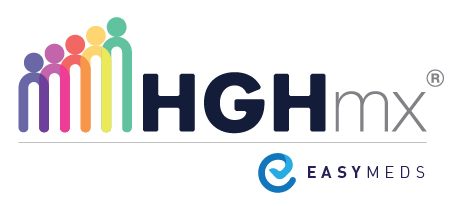Welcome to the ultimate guide on HGH dosage strategies! Whether you’re looking to boost your kids height, improve athletic performance, slow down the aging process, or enhance your overall well-being, finding the right dosage of Human Growth Hormone (HGH) is crucial. In this comprehensive handbook, we will delve into the science behind HGH and explore the various dosage options available for different needs. From understanding the benefits of HGH to debunking common myths, this guide will equip you with the knowledge you need to make informed decisions about your HGH dosage. Whether you’re a seasoned user or just starting on your HGH journey, this article will provide you with valuable insights, expert tips, and proven strategies to optimize your HGH dosage for maximum results. So, let’s dive in and unlock the secrets to achieving your health and fitness goals with the perfect HGH dosage!
Understanding the importance of proper HGH dosage
Proper HGH dosage is crucial for achieving the desired results while minimizing potential risks. HGH, a hormone produced by the pituitary gland, plays a vital role in growth, metabolism, and overall well-being. However, excessive or inadequate dosages can lead to adverse effects.
To determine the appropriate HGH dosage, factors such as age, weight, medical condition, and desired outcome must be considered. Consulting with a healthcare professional who specializes in hormone therapy is highly recommended to ensure personalized guidance.
It’s also essential to understand that HGH is not a magic pill. It is a tool that, when used correctly, can help optimize various aspects of health and performance. Combining proper dosage with a healthy lifestyle, regular exercise, and balanced nutrition will yield the best results.
Defining HGH Dosage for kids’ growth
Children with growth hormone deficiencies may require HGH therapy to achieve normal growth. The dosage for pediatric patients is determined based on weight, age, and individual needs. Typically, a daily injection of HGH is administered until the child reaches their desired height or until the growth plates close.
It’s important to note that HGH therapy for children should be closely monitored by a pediatric endocrinologist. Regular check-ups and growth assessments are essential to ensure the dosage is adjusted as needed and to monitor any potential side effects.
The average dosage of Human Growth Hormone (HGH) for children with growth hormone deficiencies is 0.04 IU/kg body weight per day, which is equivalent to 0.025 to 0.035 mg/kg per day. As the child’s growth progresses, the dosage may be adjusted based on regular check-ups and assessments.
HGH dosage for medical conditions and hormone deficiencies
In addition to growth hormone deficiencies in children, HGH therapy is also used to treat various medical conditions and hormone deficiencies in adults. These conditions may include Turner syndrome, Prader-Willi syndrome, and adult growth hormone deficiency. The dosage for medical conditions and hormone deficiencies is typically higher than that used for anti-aging or athletic performance enhancement.
The average dosage of Human Growth Hormone (HGH) for medical conditions and hormone deficiencies in adults is typically between 0.5 mg to 2.0 mg per day, administered either as a single injection or divided into multiple doses throughout the day. The exact dosage varies depending on the individual’s age, weight, medical condition, and desired outcome.
HGH dosage for anti-aging and overall health
As we age, our natural HGH production declines, leading to various signs of aging. Many individuals turn to HGH therapy to slow down the aging process and improve overall health. However, finding the right dosage for anti-aging purposes can be challenging. For anti-aging and overall health purposes, lower dosages of HGH are usually recommended. Starting with a conservative dosage and gradually increasing it over time allows the body to adjust and minimize potential side effects.
For anti-aging and overall health purposes, a typical Human Growth Hormone (HGH) dosage is lower than that used for medical conditions and hormone deficiencies. The average suggested dosage for anti-aging purposes is 0.006 to 0.017 mg/kg body weight per day, which equates to approximately 0.4 to 1.2 IU/day for a 70 kg adult.
HGH dosage for muscle growth and bodybuilding
HGH is often sought after by individuals looking to build muscle mass and improve body composition. When used for muscle growth and bodybuilding, higher dosages of HGH are typically required. However, it’s important to note that using HGH for these purposes without proper guidance and supervision can be dangerous.
For muscle growth and bodybuilding, higher dosages of HGH are typically required compared to those used for anti-aging or overall health. The average dosage for these purposes is 2-4 IU (0.8-1.6 mg) per day for a period of 4-6 months. This dosage should be closely monitored during the treatment cycle.
HGH dosage for weight loss and weight management
HGH has been shown to aid in fat loss and weight management by increasing metabolism and promoting the breakdown of stored fat. However, finding the right dosage for fat loss requires careful consideration.
For fat loss and weight management, lower to moderate HGH dosages are typically recommended. Starting with a conservative dosage and gradually increasing it under the guidance of a healthcare professional can help minimize potential side effects and optimize results. It’s important to note that HGH should not be used as a standalone solution for weight loss. A comprehensive approach that includes regular exercise, healthy eating habits, and lifestyle modifications is crucial for long-term success.
For weight loss and weight management, the average dosage of Human Growth Hormone (HGH) is usually between 0.5 mg to 1 mg per day.
HGH dosage for athletic performance enhancement
Athletes often turn to HGH to enhance their performance and gain a competitive edge. However, the use of HGH in sports is highly regulated and may be subject to anti-doping rules and regulations.
For athletic performance enhancement, higher dosages of HGH may be required. It’s important for athletes to work closely with their sports medicine team and comply with all governing bodies’ guidelines and regulations. Regular monitoring and adjustments to the dosage may be necessary to achieve the desired performance-enhancing effects safely.
Athletes may use HGH to improve performance and recovery time. The typical dosage range is anywhere from 2 IU (1.33 mg) up to 8 IU (5.3 mg) per day, with doses of 4 IU (2.67 mg) being the most common.
HGH dosage for injury recovery and healing
HGH has been shown to accelerate injury recovery and promote healing in certain cases. When used for injury recovery, a higher dosage of HGH may be necessary to support the body’s healing process.
However, it’s important to note that HGH should only be used for injury recovery under the guidance of a healthcare professional. Self-administering HGH without proper medical supervision can lead to adverse effects and complications. A healthcare professional will determine the appropriate dosage and closely monitor the healing progress to ensure optimal results.
For injury recovery, the average dosage of Human Growth Hormone (HGH) is usually around 2iu or more per day. This dosage should be closely monitored by a healthcare professional to ensure optimal results and minimize potential side effects.
Common misconceptions and risks associated with improper HGH dosage
Misconceptions about HGH abound, and improper dosage can lead to serious health risks. Some individuals may believe that higher dosages of HGH will yield better results, but this is not necessarily true. Using excessive dosages can increase the risk of side effects and health complications.
It’s crucial to follow the recommended dosage guidelines provided by a healthcare professional. Taking HGH without proper guidance or using it for unapproved purposes can have serious consequences on health and well-being.
Monitoring and adjusting HGH dosage
Monitoring the body’s response to HGH therapy is essential for optimizing results and minimizing potential risks. Regular check-ups with a healthcare professional will allow for adjustments to the dosage as needed.
Blood tests may be performed to evaluate hormone levels and ensure that the dosage is appropriate. Monitoring factors such as insulin-like growth factor 1 (IGF-1) levels and potential side effects will help ensure the dosage is adjusted accordingly for maximum benefit.
Conclusion: Finding the right HGH dosage for your specific needs
In conclusion, finding the right HGH dosage is crucial for achieving your specific goals, whether it be enhancing athletic performance, slowing down the aging process, or improving overall well-being. It’s important to work closely with a healthcare professional who specializes in hormone therapy to determine the appropriate dosage for your individual needs.
Remember, HGH is not a magic solution, but rather a tool that, when used correctly, can help optimize various aspects of health and performance. Combine the right dosage with a healthy lifestyle, regular exercise, and balanced nutrition to maximize the benefits of HGH therapy.
By understanding the science behind HGH, debunking common myths, and following expert tips and strategies, you can unlock the secrets to achieving your health and fitness goals with the perfect HGH dosage. So, take the first step towards optimizing your well-being and consult with a healthcare professional to embark on your HGH journey today!







